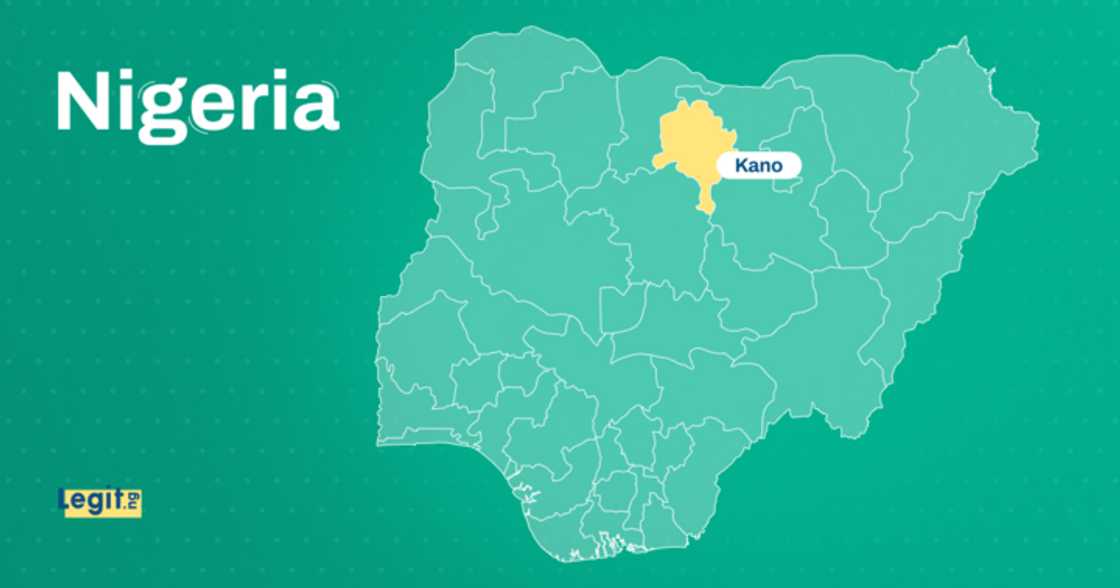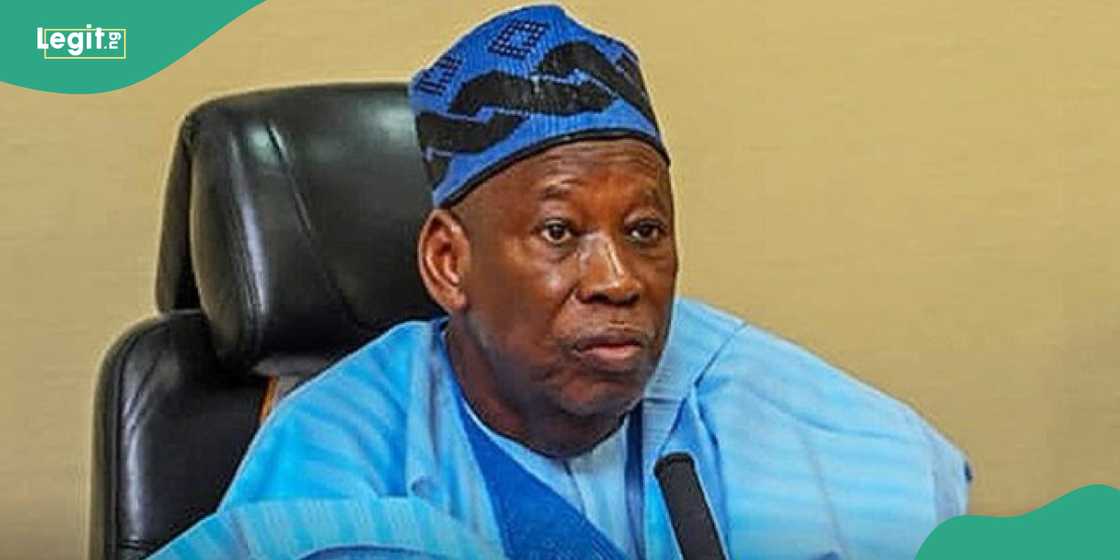In recent days, the management of Dala Inland Dry Port (DIDP) has been addressing what it describes as “malicious and unfounded” reports alleging the involvement of the family of former Kano State governor, Dr. Abdullahi Umar Ganduje, in the company’s ownership. At a time when transparency and corporate governance are under close scrutiny across Nigeria, these developments offer a rare look into the intricate world of public-private partnerships, regional investments, and the challenges faced by infrastructural projects in West Africa.
Barrister Adamu Aliyu Sanda, secretary of the DIDP, categorically denied that any member of the Ganduje family holds a stake in the company. According to Sanda, official filings and documents submitted to the Corporate Affairs Commission (CAC) — the statutory body responsible for registering Nigerian companies — confirm that the Ganduje family has never been involved as shareholders, directors, or signatories in DIDP’s operations. He asserted that these allegations were false and seemed designed to damage reputations rather than expose the truth.
Sanda further clarified the company’s ownership structure following recent public debate. Relying on official records and board resolutions, he emphasized that the Ganduje family’s name has never appeared in any capacity within the firm’s regulatory or corporate documentation. “All relevant CAC documents and resolutions from the board clearly illustrate that the Ganduje family—contrary to recent media speculation—has no interest, shareholding, or signatory authority within Dala Inland Dry Port,” Sanda explained in a press statement dated October 8, 2025, as reported by The Guardian.
“This claim is entirely false. You cannot ‘remove’ an entity that never existed as a shareholder or director in the first place.
“The repeated circulation of this falsehood appears to be part of a coordinated attempt to malign Dr. Ganduje’s reputation and mislead the public.”
Recounting the project’s origins, Sanda explained that Dala Inland Dry Port was originally established by prominent Kano entrepreneur, Ahmad Rabi’u, and a group of associates. Early progress in the initiative reportedly stagnated, leading stakeholders to seek new investment partners. At that juncture, City Green Enterprises (CGE) was invited to breathe life into the dormant project, representing a key moment that shifted the company’s shareholding structure.
According to Sanda’s statement, Rabi’u later consolidated all existing shares under his name. Following this restructuring, he made the decision to sell an 80% controlling stake to City Green Enterprises, while retaining a 20% personal interest in the company. This major transactional event was properly documented and registered with the CAC, further reinforcing transparency through official state and federal regulatory channels.
Contrary to certain claims circulating in the public domain, Sanda made it clear that neither the Kano state government nor any member of the Ganduje family took part in this transaction. “There is no record whatsoever of the Kano state government or the Ganduje family being buyers, sellers, or signatories during or after the company’s equity sale,” he stated.
A popular misconception has been that the state government retained a 20% share in DIDP following these transactions. Sanda refuted these claims, stating that the only involvement from the Kano state government relates to infrastructure support, primarily as part of Corporate Social Responsibility (CSR) efforts, coordinated by the Nigerian Shippers’ Council. Contributions from the state, Sanda noted, do not translate into direct ownership or voting rights within the company.

Source: Original
Ownership, Infrastructure, and State Participation: Insights for Nigeria and West Africa
Dala Inland Dry Port’s story is not just about individual investors or political figures—it’s a reflection of how infrastructural projects are often financed and managed in Nigeria and across Africa. The recurring involvement of different stakeholders, from local entrepreneurs to government agencies, underlines the complexities inherent in scaling trade and logistics capacity in the region. For industry watchers and policy analysts, the DIDP episode provides a revealing case study in corporate governance and the regulatory environment facing investors.
As a major dry port located in northern Nigeria, DIDP serves as a hub for cargo movement inland, aiming to decongest seaports and facilitate efficient distribution for businesses throughout Kano and the wider West African corridor. The dry port model has emerged as a strategic solution to logistical bottlenecks but has also been prone to stakeholder contestation, especially where public sector support and private sector investment intersect.
According to industry analyst, Bola Adekunle, “Transparency is crucial in Nigeria’s growing logistics sector. Projects like Dala Inland Dry Port play an essential role in regional trade, but any hint of impropriety can delay expansion or scare off vital investment.”
FCT Minister Nyesom Wike Levies Penalties Over Property Misuse
In a related development, the Federal Capital Territory (FCT) minister, Nyesom Wike, recently issued a clampdown on several high-profile individuals, including former Governor Ganduje, by imposing N5 million fines. The penalties reportedly stem from the alleged illegal use and conversion of properties within Abuja, underscoring the FCT’s renewed focus on upholding property regulations and zoning compliance.
Those affected—including Ganduje, Idiagbon, and Oyinlola—have each been directed to remit the violation fee within 30 days, with a deadline set for September 10, 2025, according to official pronouncements. This move is part of a broader crackdown designed to discourage unauthorized real estate activity and promote the orderly growth of Abuja in line with city master planning.
Urban development experts point out that such penalties, while significant, may only be effective if consistently enforced. “Fines are a strong initial deterrent,” stated Abuja-based consultant, Ifeoma Eze. “But real change comes from transparent processes and regular oversight, ensuring all actors — no matter their status — are held accountable.”
Revenue Disputes and Regional Political Tensions
The intersection between governance, investment, and accountability in northern Nigeria has also flared in recent political rhetoric. According to recent reports, Dr. Ganduje—a former national chairman of the All Progressives Congress (APC)—has sharply criticized the current Kano governor, Abba Kabir Yusuf. Ganduje claims that Governor Yusuf has received greater allocations from President Bola Ahmed Tinubu’s federal administration in just six months than Ganduje obtained over his own two-term, eight-year tenure.
Ganduje contends that, despite this increased revenue, there is little visible progress on the ground, sparking debates on budget management and project delivery within Kano State. The governor’s administration has yet to formally respond to these allegations, but the exchange has intensified scrutiny of public spending—a topic that resonates with citizens not only in Kano but across the country as lean economic conditions persist.
For many Nigerians, claims and counterclaims over revenue utilization are not new, but the high-profile nature of the individuals involved has brought renewed focus on the importance of accountable governance, especially regarding infrastructural investment and community development. Similar debates over allocation, impact, and oversight can be found in other parts of West Africa, including Ghana and Côte d’Ivoire, as governments seek to balance political, social, and economic demands.
Community and Stakeholder Perspectives
Community voices, especially around Kano, have weighed in on the controversy. Local business owners point out that clarity about investments and transparency in public-private projects are key to attracting further development. “We just want to know that whoever is behind these projects is putting the interests of the local economy first,” remarked Musa Lawan, a Kano-based trader, while speaking to local radio.
Legal experts also note that such high-profile cases can prompt meaningful regulatory reforms. Barrister Rahila Adamu, a specialist in Nigerian corporate law, noted, “When questions are raised and addressed through proper channels, it pushes our companies and public officials to adhere to best practices and documentation. It’s a healthy process, even when the allegations are proven false.”
Looking Ahead: Lessons for Investors, Officials, and Citizens
The current dialogue around DIDP ownership, high-profile penalty fees in Abuja, and political revenue disputes has direct implications for Nigeria’s—and West Africa’s—ongoing efforts to promote transparency, attract investment, and strengthen regulatory enforcement. Stakeholders in logistics, real estate, and governance are likely to monitor how these developments unfold, and whether lessons learned here can be applied to other infrastructural projects shaping the regional economy.
In summary, the conversation reflects wider issues across Africa’s growing markets: the need for clear documentation, fair regulatory practices, and open communication between public and private sectors. The hope among many in the region is that these debates push the broader system toward greater accountability and effectiveness—laying groundwork for both local prosperity and cross-border trade expansion.
How do you think increased transparency and accountability can benefit infrastructural projects in Nigeria and across Africa? What challenges remain in ensuring equitable development and investment? Drop your thoughts in the comments—your voice matters!










